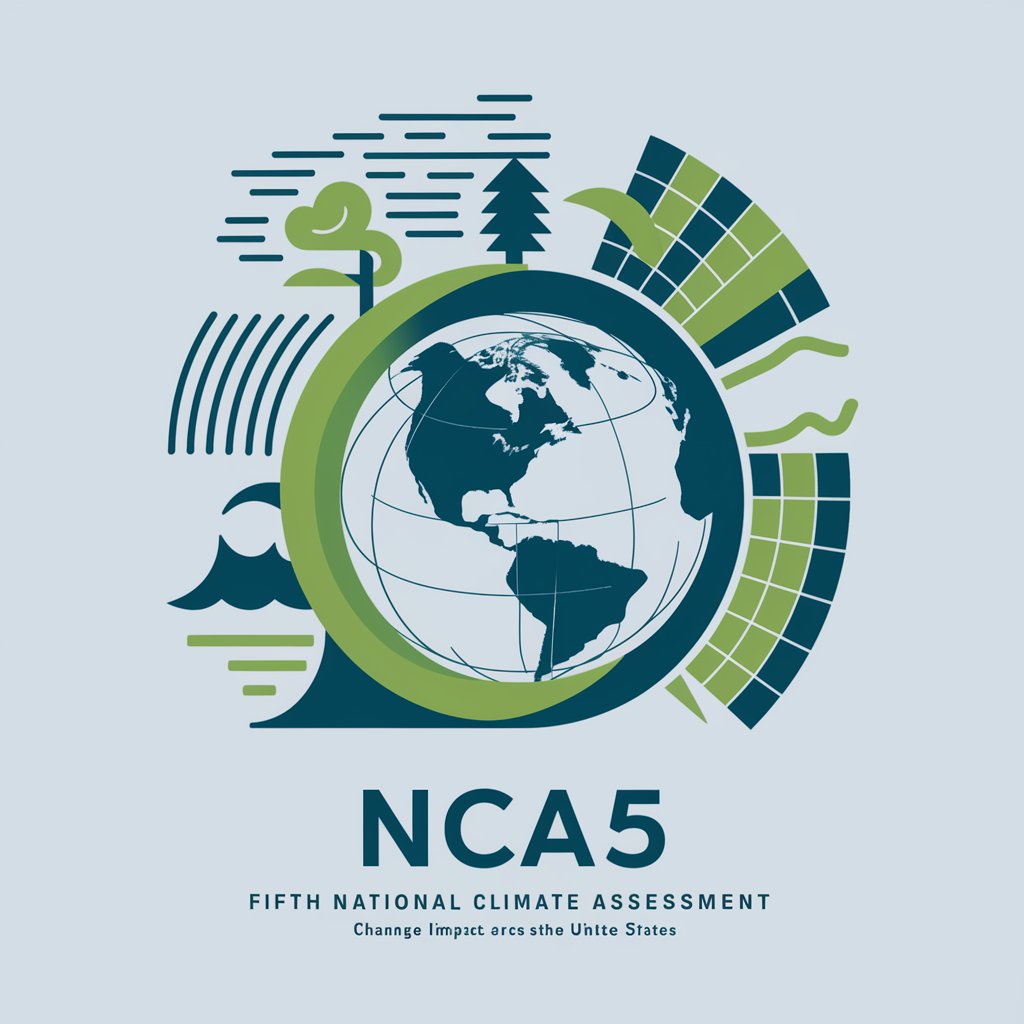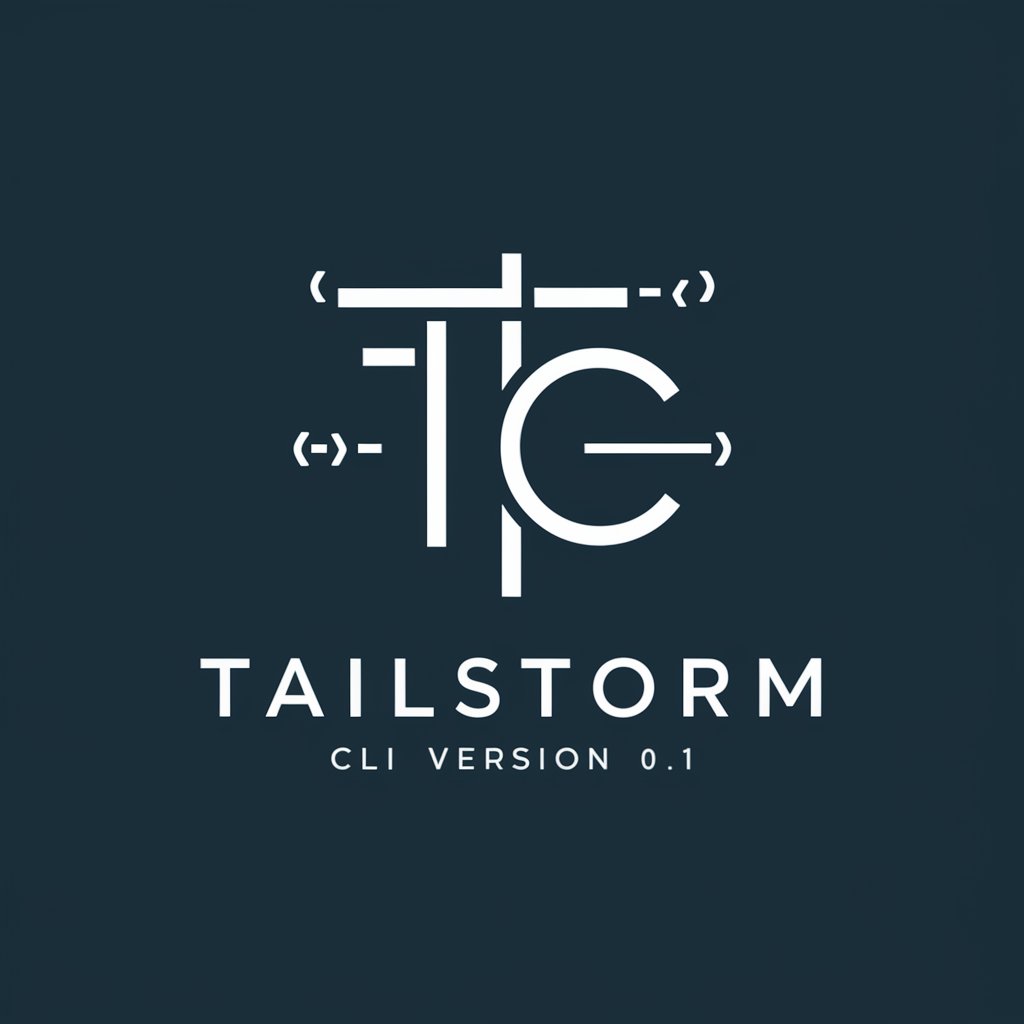
5TH NATIONAL CLIMATE ASSESSMENT - Detailed Climate Insights

Welcome! How can I assist you with climate information today?
AI-Powered Climate Knowledge Hub
What are the current trends in global warming according to the Fifth National Climate Assessment?
How is climate change affecting water resources in the United States?
What measures are being taken to adapt to climate change impacts on forests?
How are coastal communities responding to rising sea levels?
Get Embed Code
Introduction to the 5th National Climate Assessment
The 5th National Climate Assessment (NCA5) is a comprehensive report designed to evaluate and communicate the impacts of climate change across the United States, now and in the future. It synthesizes the latest scientific knowledge about the current status of the climate and projects future changes, providing invaluable insights into how climate change is affecting the natural environment, human health, and the economy. A key purpose of NCA5 is to inform policymakers, resource managers, and the public about the ways climate change is expected to impact various sectors and regions, thereby supporting informed decision-making and effective adaptation and mitigation strategies. For example, NCA5 examines changes in weather patterns, sea levels, biodiversity, and economic activities, illustrating these impacts through scenarios such as the increased frequency of extreme weather events or shifts in agricultural productivity. Powered by ChatGPT-4o。

Main Functions of the 5th National Climate Assessment
Assessment of Climate Change Impacts
Example
Evaluating how rising temperatures and changing precipitation patterns affect water resources, leading to scenarios like more frequent and severe droughts in the Southwest.
Scenario
Water managers in arid regions use NCA5 insights to develop more resilient water supply systems.
Support for Adaptation and Mitigation Planning
Example
Providing data on sea-level rise to guide coastal infrastructure design, helping communities to prepare for future flood risks.
Scenario
Urban planners in coastal cities implement adaptive measures such as elevated buildings and improved drainage systems.
Educational Resource
Example
Offering detailed examples of climate impacts, such as the effect of warming oceans on marine ecosystems, to enhance climate literacy.
Scenario
Teachers use NCA5 as a curriculum resource to educate students about climate change and its effects on the environment.
Policy Guidance
Example
Outlining the economic impacts of climate change on sectors such as agriculture, energy, and health, to inform policy and investment decisions.
Scenario
Legislators and policymakers reference NCA5 findings to draft climate-related legislation and allocate funding for resilience projects.
Ideal Users of the 5th National Climate Assessment Services
Policymakers and Legislators
Individuals involved in crafting laws and policies can utilize the NCA5 to understand the implications of climate change on various sectors and to formulate evidence-based policies for mitigation and adaptation.
Environmental and Resource Managers
Professionals responsible for managing natural resources, such as water and forests, benefit from NCA5's insights into how climate change could affect resource availability and ecosystem health.
Educators and Students
Teachers and students across educational levels can use NCA5 as a rich source of information for learning and teaching about the science of climate change and its real-world impacts.
Business Leaders and Investors
Corporate decision-makers and investors can leverage NCA5 data to assess climate-related risks and opportunities in their industries, guiding strategic planning and investment in resilience and sustainability initiatives.
Community Planners and Urban Developers
These professionals can apply NCA5 findings to design infrastructure and urban development projects that are resilient to future climate conditions, ensuring community safety and sustainability.

Guidelines for Using 5TH NATIONAL CLIMATE ASSESSMENT
Start Your Exploration
Access a hassle-free trial at yeschat.ai, no login or ChatGPT Plus subscription required, to begin your journey with the 5TH NATIONAL CLIMATE ASSESSMENT.
Identify Your Focus Area
Determine the specific climate-related topic or region you're interested in, such as coastal effects, energy impact, or ecosystems.
Utilize the Q&A Feature
Leverage the tool's capability to ask direct questions and receive detailed, comprehensive responses based on the latest climate assessment data.
Apply the Insights
Use the obtained information for your specific needs, whether it's policy-making, academic research, or personal knowledge enhancement.
Explore Further Resources
For a deeper understanding, follow the provided links and references to official reports, scientific papers, and other reliable sources.
Try other advanced and practical GPTs
Stargate SG-1 Companion
Explore Stargate SG-1 with AI-powered insights.

SwiftGPT
Direct Answers, AI Simplicity

Copy Like from Ogilvy
Revolutionizing Creativity with AI Insight

EVE - Your Vegan Coach
AI-Powered Vegan Lifestyle Assistant

Music Matchmaker
Discover Music Tailored to Your Taste

Game: Oregon's Treacherous Trails
Navigate, visualize, and survive Oregon's whimsical perils.

Become a Wizard in the world of Harry Potter!
Embark on a Magical Journey Powered by AI

Whisky.com Assistant
Unlock the World of Whisky with AI

Deck in a Box
Your AI-Powered Presentation Partner

Tailstorm
Craft Stunning Interfaces with AI-Powered CSS

Life Savvy
Empowering Emotional Intelligence with AI

Rubber Duck
Your AI-Powered Coding Companion

Frequently Asked Questions about 5TH NATIONAL CLIMATE ASSESSMENT
What is the 5TH NATIONAL CLIMATE ASSESSMENT?
The 5TH NATIONAL CLIMATE ASSESSMENT is an AI-powered tool designed to provide detailed, user-friendly insights from the latest national climate report, offering up-to-date information on various climate-related topics.
How can the 5TH NATIONAL CLIMATE ASSESSMENT assist in academic research?
The tool aids researchers by providing comprehensive, easily understandable summaries and analyses of complex climate data, helping to enhance the quality and depth of academic papers or reports.
Can this tool help in understanding the local impacts of climate change?
Yes, the 5TH NATIONAL CLIMATE ASSESSMENT can offer localized climate impact assessments, allowing users to understand and prepare for specific environmental changes in their region.
Is the 5TH NATIONAL CLIMATE ASSESSMENT useful for policy-makers?
Absolutely, the tool provides policy-makers with precise, science-backed data and projections that can inform and guide climate-related policies and strategies.
Does the tool offer solutions or adaptation strategies for climate-related challenges?
While the tool primarily provides data and analysis, it also highlights various mitigation and adaptation strategies discussed in the 5TH NATIONAL CLIMATE ASSESSMENT, serving as a guide for addressing climate challenges.





